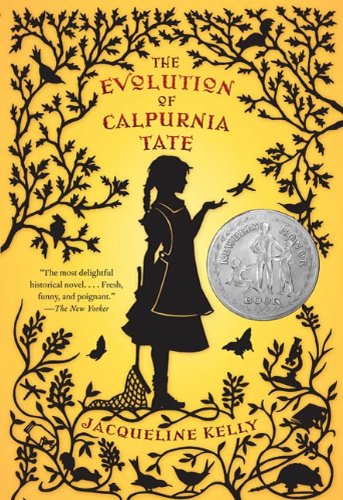
Mentor Texts for Writers: Studying Lyrical Language for Prose by Renée M. LaTulippe
Words can not express how much I have learned from Renée. I have loved reading and writing poetry for many years, but when I took Renée’s The Lyrical Language Lab class, I loved poetry even more. She is an amazing teacher and she gives such valuable feedback. I continue to learn from her in the class’s Facebook group. I’m so happy to have her here sharing her knowledge with you.
When I began developing my online course The Lyrical Language Lab: Punching Up Prose with Poetry, I knew I’d need to provide a lot of examples of how poetic techniques can be used in prose.
The first place I turned to was MG and YA novels, particularly Newbery Medal and Honor winners. There are so many rich examples in the genre! What I specifically look for in mentor texts is not just lovely language that sounds pretty, but language that strengthens and supports every single story element, including mood, tone, setting, and character. And, since I am using these texts to teach, I want to be able to pinpoint the poetic techniques being used and show how they support the story elements.
My favorite example, and one that I use in my course, is from Walk Two Moons by Sharon Creech. (This is printed in other blog posts around the Internet, but it really bears repeating!) (Click to enlarge.)
In these few pages, Creech uses several poetic techniques that support other story elements, including:
- Figurative language and imagery (red)
- Diction (fuchsia)
- Repetition (purple)
- Sound devices (green)
- Hyperbole (blue)
What I particularly love about this example is that 1) it is so full of poetic techniques that I can use this text for multiple purposes, and 2) these are the opening pages to the novel, which is so important for me when I search for mentor texts. I want to see that magic from the moment I open the book, so I can then show students how important it is to pay attention to every word, starting with the very first one.
Because I rely heavily on first pages, I have found Amazon’s “Look Inside” feature to be a big help in my search for mentor texts. It’s the first place I go when I discover a new possibility, and often use this feature to find more models for lyrical language. Some first pages that I am adding to my growing list of texts are from
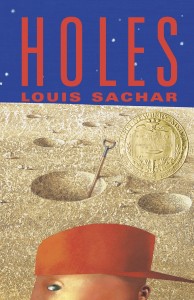 Holes by Louis Sachar for its amusing and effective use of repetition to create and support the narrator’s voice.
Holes by Louis Sachar for its amusing and effective use of repetition to create and support the narrator’s voice.
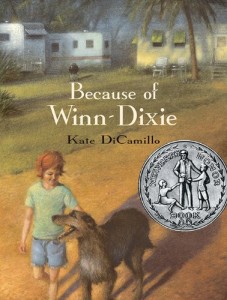 Because of Winn-Dixie by Kate DiCamillo for its rhythm and pacing.
Because of Winn-Dixie by Kate DiCamillo for its rhythm and pacing.
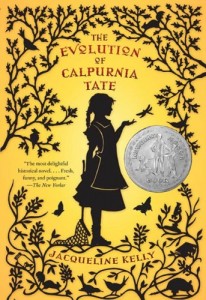 The Evolution of Calpurnia Tate by Jacqueline Kelly for its imagery and use of similes.
The Evolution of Calpurnia Tate by Jacqueline Kelly for its imagery and use of similes.
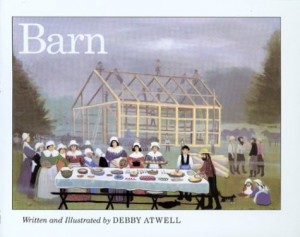 Barn by Debbie Atwell (picture book) for the lyrical language that paints a picture of the book’s setting.
Barn by Debbie Atwell (picture book) for the lyrical language that paints a picture of the book’s setting.
Because each lesson in my course is focused on one concept, I don’t really use whole texts; rather, I use short excerpts to illustrate and analyze the specific concept being covered. From there, students complete a writing exercise using the excerpt as a model for their own work.
Mentor texts play a huge part in my teaching, and I’m always delighted by the “a-ha” moments students can experience when they’ve read a really great example of a particular concept – and can then apply it to their own writing.
I highly recommend that writers start a collection of their own “snippets” – those wonderful words and phrases and sentences that stop us in our tracks when we read – to refer to again and again as guides and inspiration.
*************
Renée M. LaTulippe has co-authored nine early readers and a volume of poetry titled Lizard Lou: a collection of rhymes old and new (Moonbeam Children’s Book Award) for All About Learning Press, where she is also the editor, and has poems in several editions of The Poetry Friday Anthology series as well as the upcoming anthologies The National Geographic Book of Nature Poetry and One Minute Till Bedtime. She developed and teaches the online course The Lyrical Language Lab: Punching Up Prose with Poetry and blogs on children’s poetry at NoWaterRiver.com..
Copyright (c) 2015 Renée M. LaTulippe.
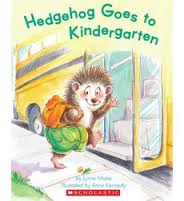
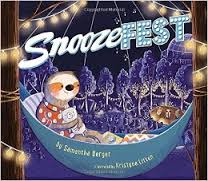
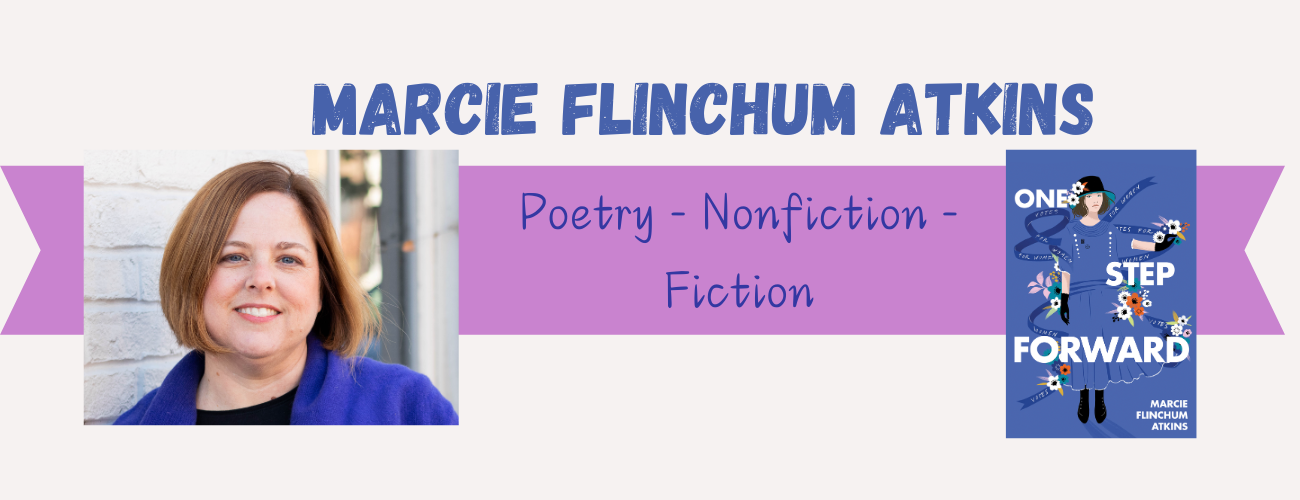
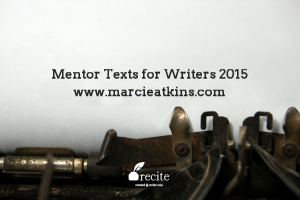
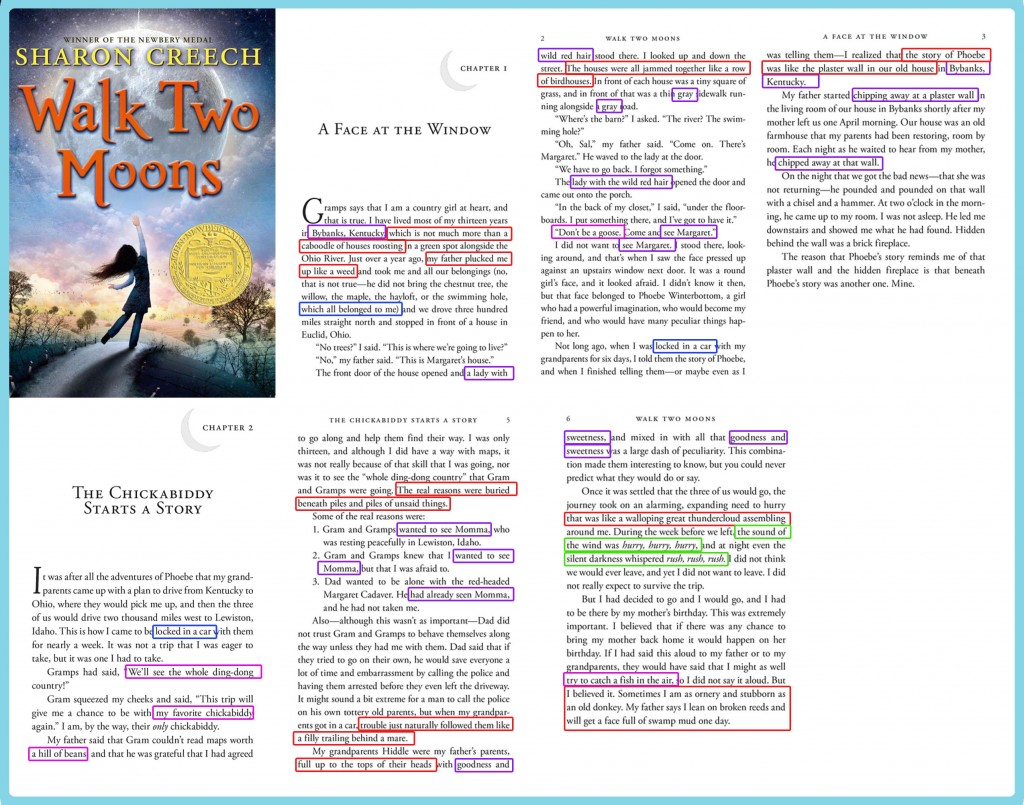
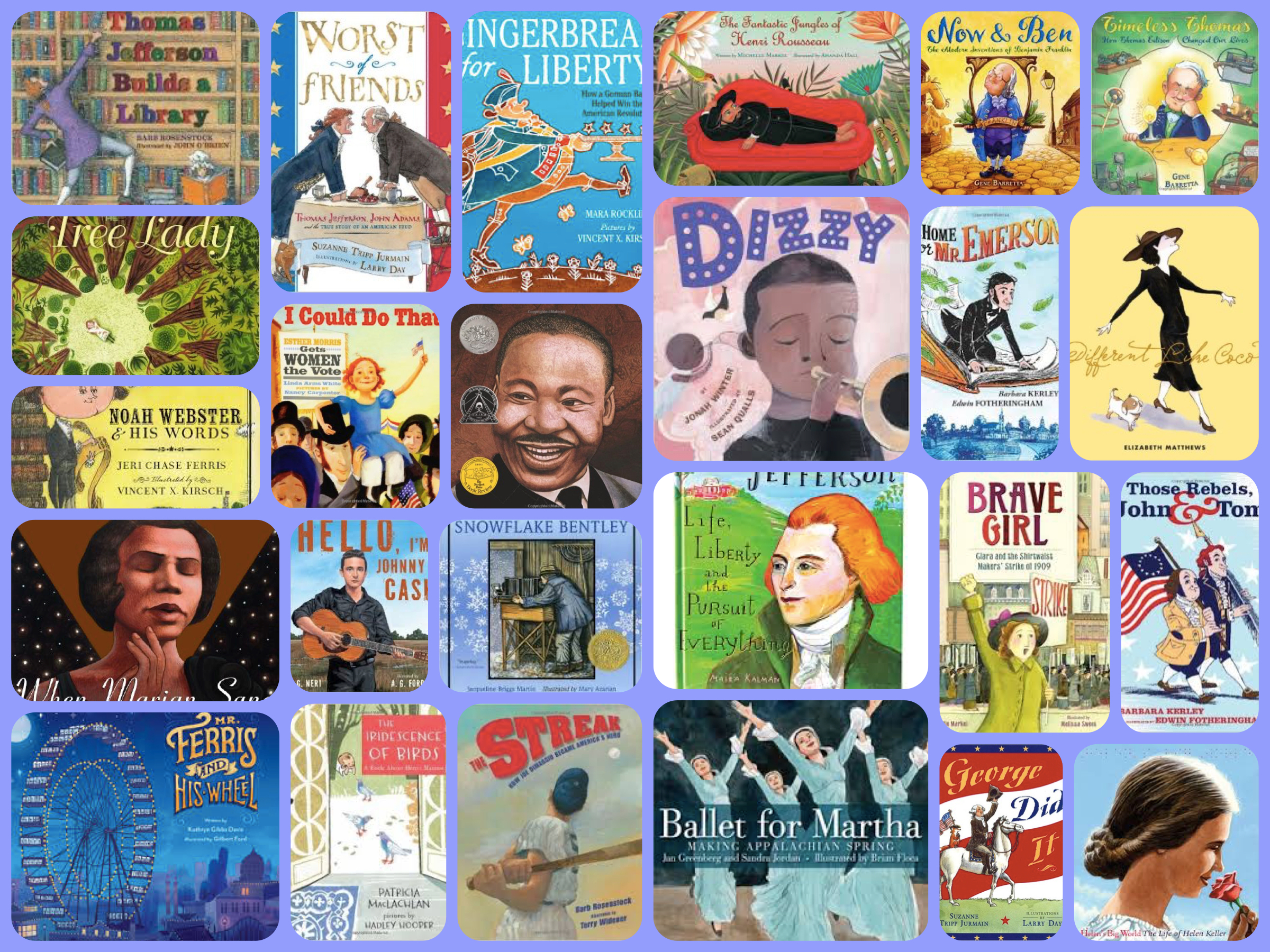
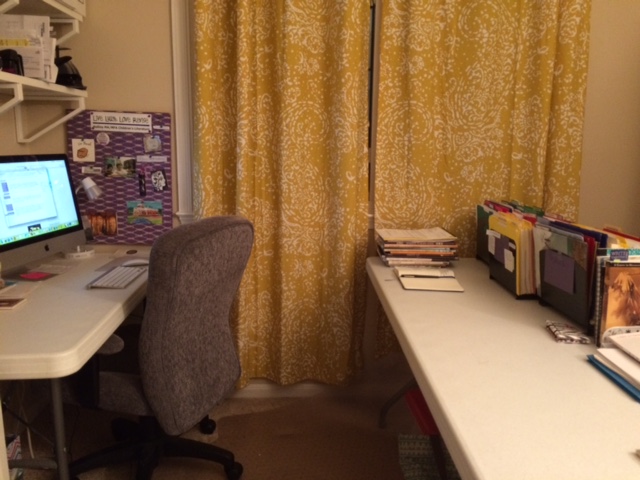
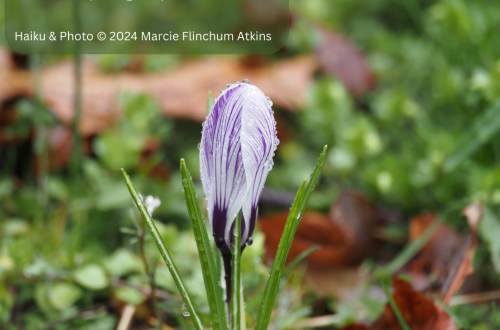
2 Comments
Teresa Robeson
Renee’s course and advice are too awesome for words! It is my privilege to have her as one of my critique group friends.
It is my privilege to have her as one of my critique group friends.
Marcie Flinchum Atkins
She is awesome! How lucky for you to get her feedback on a regular basis!